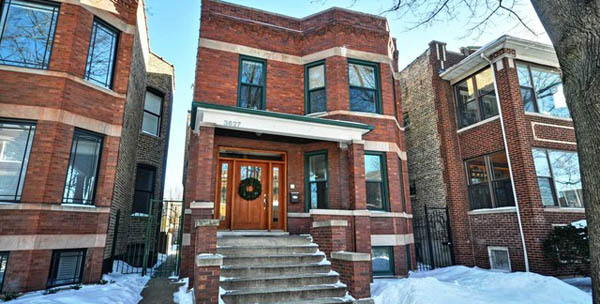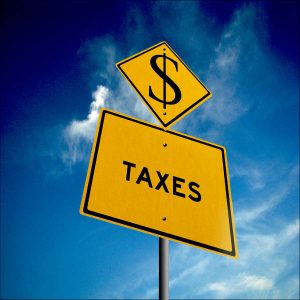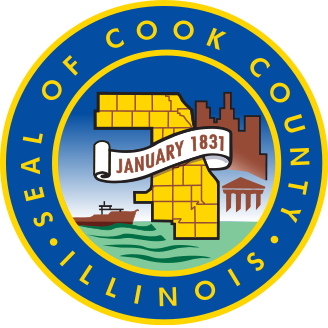
In this post, we will list the real estate tax exemptions available to qualified homeowners in Cook County and Chicago, Illinois.
Property taxes are a reality of home ownership whether you are in Cook County, DuPage, Kane, or most of Illinois.
Some homeowners in Cook County may be eligible for real estate tax exemptions for a portion of their home value.
With property taxes always rising, is extremely important that you take advantage of every exemption that you qualify for.
This information has been collected for your convenience and is also available at the Cook County Assessor’s Office Website.
List of Cook County – Chicago Property Tax Exemptions
Homeowner Exemption
The Homeowner Exemption provides tax relief by reducing the equalized assessed valuation of an eligible residence.
You can receive the Homeowner Exemption if you own or have a lease or contract which makes you responsible for the real estate taxes of the residential property. It must also be used as your principal place of residence for the year in question.
If you have never received a Homeowner Exemption on your home, you will need to apply for one. (PDF application)
Related Post: High Property Taxes Sending Illinois Homeowners Towards a Cliff
Senior Citizen Exemption
The Senior Citizen Exemption provides tax relief by reducing the equalized assessed valuation of an eligible residence. This savings is in the form of a deduction on the second-installment real estate tax bill.
Senior Citizens receiving the Senior Citizen Exemption automatically qualify for the Homeowner Exemption and do not have to apply for it separately. Senior citizens have to reapply annually for the Senior Exemption.
 You must be 65 years of age or older during the tax year for which you are applying;
You must be 65 years of age or older during the tax year for which you are applying;- You must either own the property or have a lease or contract which makes you responsible for the real estate taxes; and
- The property must be your principal residence. If you have moved or plan to move in the future, you may be entitled to a prorated Senior Citizen Exemption, based on the time of occupancy.
To apply for a prorated Senior Citizen Exemption you must submit:
- A Senior Citizen Exemption Application Form
- A closing or settlement statement
- Copy of a recent property tax bill
- Copy of proof of age and residency
If you are eligible for the exemption, please complete and sign the Senior Citizen Exemption Application Form (PDF).
More details available at Cook County Tax Assessor’s website.
Related Post: Senior Real Estate Tax Deferral in DuPage County
Senior Freeze Exemption
 The Senior Freeze Exemption allows qualified senior citizens to apply for a freeze of the equalized assessed value (EAV) of their properties for the year preceding the year in which they first apply and qualify for this exemption. For example, a senior citizen who qualifies and applies for this exemption in taxable year 2016 will have the EAV of the property frozen at the 2015 EAV.
The Senior Freeze Exemption allows qualified senior citizens to apply for a freeze of the equalized assessed value (EAV) of their properties for the year preceding the year in which they first apply and qualify for this exemption. For example, a senior citizen who qualifies and applies for this exemption in taxable year 2016 will have the EAV of the property frozen at the 2015 EAV.
Those who qualify and receive this exemption should be aware that this does not automatically freeze the amount of their tax bill. Only the EAV remains at the fixed amount. The amount of dollars that the taxing districts asks for (levy) may change and thus alter a tax bill.
You must file each year in order to continue to receive the Senior Freeze Exemption and the requirements must be met each year.
To qualify for the taxable year 2016, you must meet all of these requirements:
- Be born prior to or in the year 1951,
- Have a total gross household income of no more than $55,000 for 2015,
- Own the property, or have a legal, equitable or leasehold interest in the property on January 1, 2015 and January 1, 2016,
- Be liable for the payment of 2015 and 2016 property taxes, and
- Use the property as a principal place of residence on January 1, 2015 and January 1, 2016.
Those who are currently receiving the Senior Citizen Exemption will automatically receive an application form for the Senior Freeze Exemption.
Senior Freeze Exemption Form (PDF)
Longtime Homeowner Exemption
 The Longtime Homeowner Exemption was designed to offset increases in property values for homeowners who have lived in their homes for 10 years or more and experienced significant growth in their property’s value. Cook County Assessor Joseph Berrios and his staff are happy to assist with this information.
The Longtime Homeowner Exemption was designed to offset increases in property values for homeowners who have lived in their homes for 10 years or more and experienced significant growth in their property’s value. Cook County Assessor Joseph Berrios and his staff are happy to assist with this information.
Those who qualify and receive this exemption should be aware that the exemption is not automatically renewed. The property must continue to qualify and the exemption must be applied for annually.
To qualify for Tax Year 2016, you must please meet each of these requirements:
- Have used the property as a principal place of residence from January 1, 2006 to January 1, 2016
- Had a gross household income of no more than $100,000 for 2015
- The Equalized Assessed Valuation (EAV) of the property must have increased significantly
- Own the property or have a legal, equitable or leasehold interest in the property on January 1, 2016
- Be responsible for the payment of 2016 property taxes.
Those who qualify for the Longtime Homeowner Exemption will automatically receive an application form each year, mailed directly to them. The Longtime Homeowner Exemption Form is not on the Cook County Assessor’s Office web site because the Assessor’s Office has to first calculate each home’s EAV to determine if the home qualifies for the exemption.
You must please file each year to continue to receive the Longtime Homeowner Exemption; of course, all requirements must be met each year.
If you believe you qualify, please contact the Cook County Assessor’s Office at 312-443-7550.
Related post: Low Inventory for Midpriced Suburban Chicago Homes Driving Up Prices
Home Improvement Exemption
The Home Improvement Exemption allows you to increase the value of your home with up to $75,000 worth of improvements without increasing your property taxes for at least four years.
The exemption is available to owners of single-family homes, condominiums, cooperatives, and apartment buildings up to six units.
You will automatically receive the exemption when our office field checks the building permit for the improvement. A notice will be sent to you after we complete the check.
The exemption is not granted for loss of personal property, normal weather damage, or routine maintenance. Routine maintenance includes repairs to or replacement of parts that would not increase the value of your property.
To learn whether you may qualify for the Home Improvement Exemption, call the Cook County Assessor’s Office at 312/443-7550.
Specialized Property Tax Exemptions in Cook County – Chicago
Senior Citizen Tax Deferral
The Senior Citizen Real Estate Tax Deferral program is a tax-relief program that works like a loan. It allows qualified seniors to defer a maximum of $5,000 per tax year (this includes 1st and 2nd installments) on their primary home. The loan from the State of Illinois is paid when the property is sold, or upon the death of the participant. You may find additional information at: cookcountytreasurer.com
Active Military
 Military personnel on active duty are eligible to defer the payment of real estate taxes under the provisions of the Soldiers’ and Sailors’ Civil Relief Act, as amended.
Military personnel on active duty are eligible to defer the payment of real estate taxes under the provisions of the Soldiers’ and Sailors’ Civil Relief Act, as amended.
This deferral extends to taxes becoming due in the period between your active duty and 180 days from the release from active duty.
Federal law permits interest on taxes deferred in the amount of 6% per annum instead of the interest and penalties imposed by state law. State law allows the local tax collector to waive the interest.
Cook County waives interest for a period of 180 days.
Disabled Veterans Homeowner Exemption
Veterans with a service-connected disability as certified by the U.S. Department of Veterans Affairs are eligible for this annual exemption.
It reduces by certain amounts the Equalized Assessed Value (EAV) on a disabled veteran’s primary residence, very likely lowering the tax bill.
To qualify, the veteran must be:
- an Illinois resident who has served as a member of the United States Armed Forces on active duty or State active duty, a member of the Illinois National Guard or U.S. Reserve Forces and has been honorably discharged,
- have at least a 30% service-connected disability certified by the U.S Department of Veterans Affairs,
- own and occupy the property as the primary residence as of January 1, 2016,
- have a total EAV of less than $250,000 for the primary residence, excluding the EAV of property used for commercial purposes or rented for more than six (6) months and
- apply for this Exemption each tax year
A non-remarried surviving spouse of a disabled veteran may continue to receive this exemption if the same primary residence continues as such for the surviving spouse. Or, the non-remarried surviving spouse may transfer the exemption amount (or less) to a new primary residence.
Disabled Veterans Exemption Form (PDF)
Returning Veterans Exemption
Veterans returning from active duty in armed conflict are eligible to receive a $5,000 reduction in the equalized assessed value of their property only for each taxable year in which they return.
Returning Veterans Exemption Form (PDF)
Disabled Persons Exemption
 This exemption provides disabled persons with an annual $2,000 reduction in the equalized assessed value (EAV) of the property.
This exemption provides disabled persons with an annual $2,000 reduction in the equalized assessed value (EAV) of the property.
To qualify the applicant must be:
- disabled or become disabled during the Tax Year,
- own or have a legal or equitable interest in the property, or a leasehold interest of a single-family residence,
- occupy the property as the principal residence on January 1, 2016 and
- be liable for the payment of property taxes.
If a person’s home previously received the Disabled Persons’ Homeowner Exemption and the taxpayer now resides in a facility licensed under the Nursing Home Care Act, his or her home is still eligible to receive this exemption provided:
- the property is occupied by that person’s spouse, or
- the property remains unoccupied.
Disabled Persons Exemption Form (PDF)
* Advertising Material: To the extent that the information in this post is interpreted as attorney advertising in accordance with the Illinois Rules of Professional Conduct or within the meaning of state bar rules from all other localities, this statement is made pursuant to those rules.
Specialties: Specialization claims are prohibited by Illinois Supreme Court Rules and we do not claim to be specialists. The content of this e-mail is organized and presented for the sole purpose of general information. None of the included content should be construed as legal advice. Viewing this e-mail or e-mailing the account holder does not create an attorney-client relationship. NOTICE: This page may be considered advertising material.
The Law Offices of Lora Fausett P.C. provides real estate law services including buying and selling, short sales, mortgage foreclosure defense and more.
For Information Call 630-858-0090

 Tax Sale at Star Centre Mall
Tax Sale at Star Centre Mall


 You must be 65 years of age or older during the tax year for which you are applying;
You must be 65 years of age or older during the tax year for which you are applying; The Senior Freeze Exemption allows qualified senior citizens to apply for a freeze of the equalized assessed value (EAV) of their properties for the year preceding the year in which they first apply and qualify for this exemption. For example, a senior citizen who qualifies and applies for this exemption in taxable year 2016 will have the EAV of the property frozen at the 2015 EAV.
The Senior Freeze Exemption allows qualified senior citizens to apply for a freeze of the equalized assessed value (EAV) of their properties for the year preceding the year in which they first apply and qualify for this exemption. For example, a senior citizen who qualifies and applies for this exemption in taxable year 2016 will have the EAV of the property frozen at the 2015 EAV. Military personnel on active duty are eligible to defer the payment of real estate taxes under the provisions of the Soldiers’ and Sailors’ Civil Relief Act, as amended.
Military personnel on active duty are eligible to defer the payment of real estate taxes under the provisions of the Soldiers’ and Sailors’ Civil Relief Act, as amended. This exemption provides disabled persons with an annual $2,000 reduction in the equalized assessed value (EAV) of the property.
This exemption provides disabled persons with an annual $2,000 reduction in the equalized assessed value (EAV) of the property.

 DuPage County Illinois offers senior citizen home owners the opportunity to participate in The Senior Citizens’ Real Estate Tax Deferral program.
DuPage County Illinois offers senior citizen home owners the opportunity to participate in The Senior Citizens’ Real Estate Tax Deferral program.